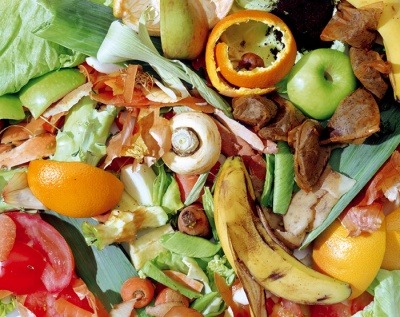WRAP publishes food waste reduction progress report
The Waste and Resources Action Programme (WRAP) has published a progress report for its Food Waste Reduction Roadmap, announcing that 121 food businesses are implementing the ‘Target, Measure, Act’ strategy to reduce food waste.

The Food Waste Reduction Roadmap was launched a year ago in partnership with IGD, a research group for the food industry, setting milestones to encourage businesses to reduce their wastage.
The Target, Measure, Act strategy asks businesses to set a food waste reduction target, measure and report their food surplus and waste and take action to reduce food waste in their business and from their suppliers and consumers.
The 121 businesses implementing the Target, Measure, Act strategy include all of the UK’s largest grocery retailers and over 100 other large food businesses. These businesses have a combined turnover of almost £220 billion, representing 50 per cent of the overall turnover for UK food manufacture, retail and hospitality and food service.
Marcus Gover, CEO of WRAP, announced the achievements at the annual meeting of the Champions 12.3, a coalition of groups working towards the UN Sustainable Development Goal (SDG) Target 12.3 to halve food waste by 2030.
He said: “I am delighted at the huge progress in this first year of the UK Food Waste Reduction Roadmap. Businesses that are implementing Target, Measure, Act are already reaping the benefits, and those publicly reporting comparable data show an average seven per cent reduction, and a combined saving of around 53,000 tonnes of food valued at over £85 million.
WRAP also leads the Courtauld 2025 programme, a voluntary initiative that aims to reduce food and drink waste in the UK food and drinks industry by 20 per cent by 2025, something that Gover feels will strengthen the UK’s ability to achieve the SDG Target 12.3.
He added: “Working together with Courtauld 2025, the Food Waste Reduction Roadmap is putting the UK on a path to achieving Sustainable Development Goal Target 12.3. But there is much more to do, and our ambition is to have all major food businesses implementing Target, Measure, Act by the end of 2026.”
Susan Barratt, CEO of IGD, said: “One year ago we launched the Food Waste Reduction Roadmap, which focused on helping food and consumer goods companies to reduce their food waste. I am delighted that more than 150 companies have now committed to support the roadmap, with 121 of these businesses already implementing Target, Measure, Act. These businesses represent a combined turnover of almost £220 billion.
“IGD and WRAP continue to work very closely with these companies, giving them the tools to understand how they can measure and reduce food waste. Our industry has made great strides on this important issue in the last 12 months, but we are not complacent. Reducing food waste is a long-term journey and we recognise there is more we can, and will, be doing in the future.”
Government Food Waste Champion Ben Elliot said: “It’s brilliant to see the Target, Measure and Act food waste prevention strategy in action with 53,000 tonnes of food rescued so far.
“However, it’s not just the food industry that needs to work on waste prevention, it’s up to all of us to help solve this issue.”
Preventing food waste
With around 10 million tonnes of food wasted annually in the UK, according to WRAP, significant efforts are being made to reduce the amount thrown away by both households and businesses.
WRAP has dedicated this September to the prevention of food waste in commercial kitchens, encouraging bars, pubs and restaurants to target food waste using a range of free resources provided by WRAP.
The month of action, entitled ‘Stand Up For Food’, is part of WRAP’s Guardians of Grub campaign, which aims to tackle the £3 billion of food thrown away each year at hospitality and food outlets.
With regard to household food waste, all councils in Northern Ireland, Wales and Scotland offer some form of food waste collection, and England is set to follow suit, with the government’s Resources and Waste Strategy outlining plans to introduce mandatory separate food waste collections to all households in England by 2023.
A report from food waste recycling company ReFood, published in July, revealed that progress has been made in tackling the food waste problem – since 2013, the UK has reduced the amount of food going to landfill by almost two million tonnes.
You can read the Food Waste Reduction Roadmap Progress Report on WRAP’s website. 







